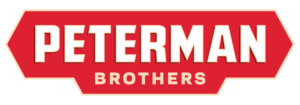Why should I get a furnace tune-up if it is working just fine?
I think you’ll agree with me when I say:
It stinks to have to buy a whole new furnace instead of just keeping the one you have.
Well, luckily, that’s where routine furnace tune-ups come in. Just like regular oil changes can extend your car’s life, this simple preventative maintenance can dramatically add to your furnace’s years.
Furnaces, like cars, are mechanical systems that start producing wear and tear the instant you turn them on. Unfortunately, these systems can rarely have a part that fails within the first year. The wear and tear on parts come from moving and creating friction or expanding and repeatedly contracting as the system heats up and cools down.
During the fall months, you will begin to use your heat, and some of the underlying problems could go unnoticed. The real problem is the first night that temperatures plummet, and your system has to work extra hard to heat your home; this sudden increase in output causes a large number of furnace failures.
The aforementioned is why furnace tune-ups are crucial to your system to help catch most of these issues before they happen in the middle of a subzero night. These surprise breakdowns can lead to costly emergency repair fees.
Some of these failures could even be deadly. Heat exchangers, which experience the most expansion and contraction, can develop cracks from this and begin to leak carbon monoxide inside your home.
Ok then, what all do you check during a furnace tune-up?
These checks are what we perform and if you have another company do this, make sure they check all these.
Gas Furnace
1. Clean furnace cabinet
2. Evaluate heat exchanger for cracks, erosion, rust, or other abnormalities
3. Take a reading of carbon monoxide
4. Clean burners
5. Clean pilot-flame sensor & take its reading
6. Ignitor reading
7. Readings for gas pressure in and out
8. Inducer rated-reading amps
9. Blower fan motor rated-reading amps
10. Fan capacitor rated-reading
11. Inspect the blower wheel
12. Inspect the safeties and limits
13. Take high voltage and low voltage readings
14. Test pressure switches
15. Inspect the wiring
16. Confirm that condensate drain and pump are operational and do not have obstructions
Air Temperature
17. Return temperature recording
18. Supply temperature recording
19. Determine differential temperate
Electric Furnace
– Take heater KW reading
– Record heater amps
– Inspect the wiring
Did you mention being able to get my furnace tune-up for free?
Yes! When you are part of our maintenance program, the “Peterman Protection Club,” you get a slew of benefits that help you keep your home heating, cooling, and plumbing in top-notch working order.
Included in the membership is a free annual furnace tune-up.
So remember, when the autumn leaves begin to paint the streets and yards in your neighborhood, it means it is time to make sure your furnace is ready to tackle the approaching sting of winter.
And when you do that, make sure your furnace tune-up includes the above-listed items.
If you would like to schedule a tune-up or have further questions, please feel free to contact us.


